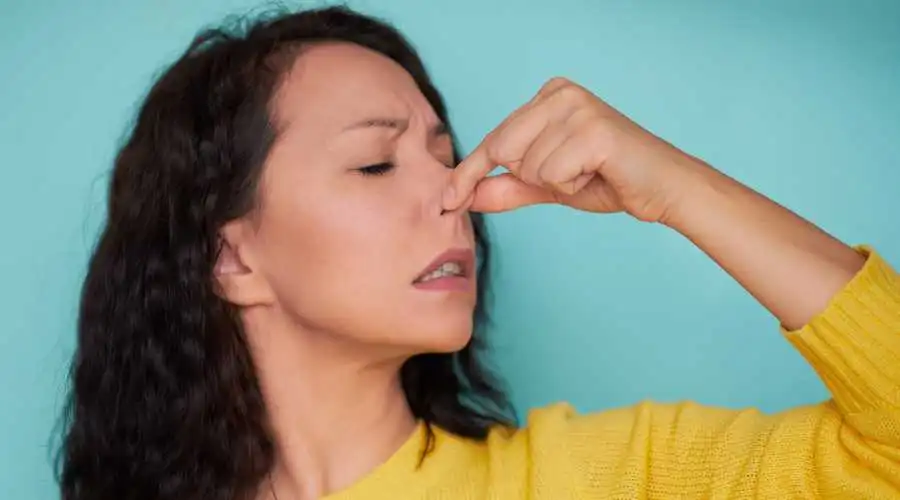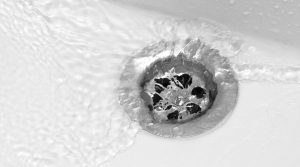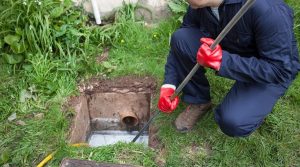Combat stinky plumbing problems with simple, practical solutions that ensure your home smells fresh and inviting.
Key Takeaways
- Common causes of stinky plumbing include sewer line damage, dirty garbage disposals, dry p-traps, and bacterial biofilm.
- Quick fixes like regular maintenance, natural cleaning solutions, and professional assistance can resolve most issues.
- Timely intervention prevents minor problems from escalating into costly repairs.
Your plumbing should make your life easier and not smell like trouble. Occasionally, unpleasant odors can emanate from your pipes, making your home stinky. While the reasons for these smells can vary, they’re often straightforward to address. Here, we explore the top causes of plumbing odors and offer actionable advice to eliminate them.
1. A Damaged Sewer Line
A damaged sewer line is one of the most concerning causes of stinky plumbing. Whether caused by clogs, tree root intrusion, or soil movement, a broken sewer line leaks sewage—a significant source of foul odors.
Signs of a Sewer Line Problem:
- Persistent sewage smell near drains or outside the home.
- Gurgling sounds from your drains.
- Frequent pest infestations.
Solution: A sewer line leak is not a DIY project. You’ll need a professional plumber to assess and resolve the issue. Depending on the severity of the damage, options include trenchless sewer repair or traditional excavation. Early detection can save you from extensive and expensive repairs.
2. Keep Your Garbage Disposal Clean
Your garbage disposal is a kitchen workhorse, but food particles can accumulate inside it over time. This buildup creates the perfect environment for foul odors.
How to Clean Your Garbage Disposal:
- Unplug the disposal: Always ensure it’s off before cleaning.
- Scrub it down: Use dish soap, warm water, and a sponge to clean the interior.
- Natural deodorizers: Pour a mixture of baking soda and vinegar into the disposal. Let it fizz for a few minutes before rinsing with hot water.
- Citrus refresh: Run the disposal with lemon or orange peels. The natural oils will leave a pleasant scent.
Regular maintenance keeps your garbage disposal running efficiently and smelling fresh.
3. Dry P-Traps
P-traps, the curved pipes beneath your sinks and showers, prevent sewer gas from entering your home. They hold a small amount of water to block odors. If you haven’t used a fixture for a while, the water in the p-trap can evaporate, allowing smells to escape.
Signs of a Dry P-Trap:
- A rotten egg smell coming from the drain.
- Odors intensify in unused bathrooms or fixtures.
Solution:
- Run water through infrequently used fixtures for a few minutes to refill the p-trap.
- Consider adding a few drops of mineral oil to slow water evaporation for long-term disuse.
4. Bacterial Biofilm Accumulation
Bacterial biofilm may be to blame if your shower drain emits a foul smell. Over time, oils, shampoos, and soaps can form a residue in the drain. Bacteria feed on this biofilm, creating an unpleasant odor.
How to Remove Biofilm:
- Flush with hot water: Pour 5-10 liters of hot (not boiling) water down the drain.
- Add natural cleaners: Mix one cup of white vinegar and one and a half cups of baking soda. Let it sit for at least two hours.
- Rinse thoroughly. Finish with another round of hot water to remove debris and bacteria.
Routine cleaning prevents biofilm buildup and keeps your bathroom fresh.
FAQ: Stinky Plumbing Problems
Q: How do I know if my plumbing smell is a serious issue?
A: Persistent odors, gurgling drains, or sewage smells outside your home may indicate a more severe problem like a sewer line break. Call a plumber if these signs appear.
Q: Can I prevent plumbing odors from occurring in the first place?
A: Yes! Regular maintenance, such as cleaning garbage disposals, running water in unused fixtures, and using natural cleaners, can help prevent odors.
Q: Are store-bought drain cleaners safe for eliminating smells?
A: While practical for minor clogs, many chemical cleaners can damage pipes over time. Opt for natural solutions like baking soda and vinegar instead.
Q: What should I do if cleaning doesn’t resolve the smell?
A: Persistent smells may require professional assessment. Hidden issues like sewer line damage or deep clogs need expert intervention.
Q: How often should I clean my garbage disposal?
A: Cleaning it once a week or biweekly prevents odor buildup and ensures optimal performance.
Conclusion
No one should endure unpleasant plumbing odors. Whether it’s a quick fix like cleaning your garbage disposal or a professional repair for a damaged sewer line, addressing these issues promptly keeps your home fresh and functional. For more complex problems, don’t hesitate to call experts like BJC Plumbers Jersey City—your go-to team for smell-free plumbing solutions. Ensure your plumbing serves you without the stench by taking proactive measures today.







